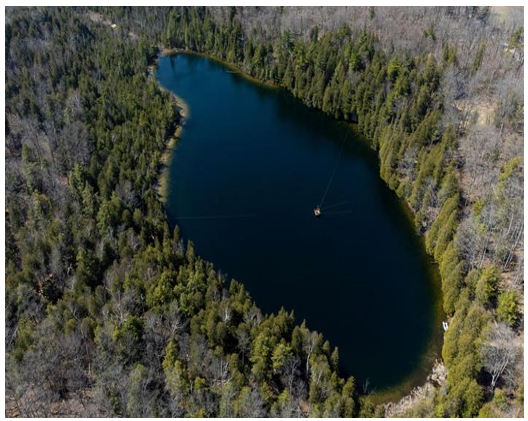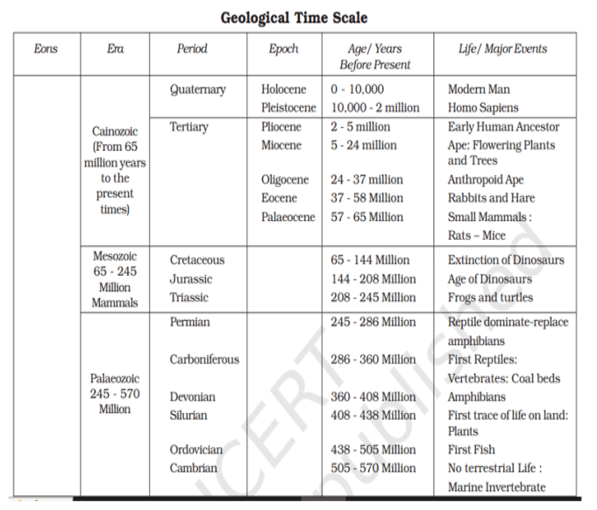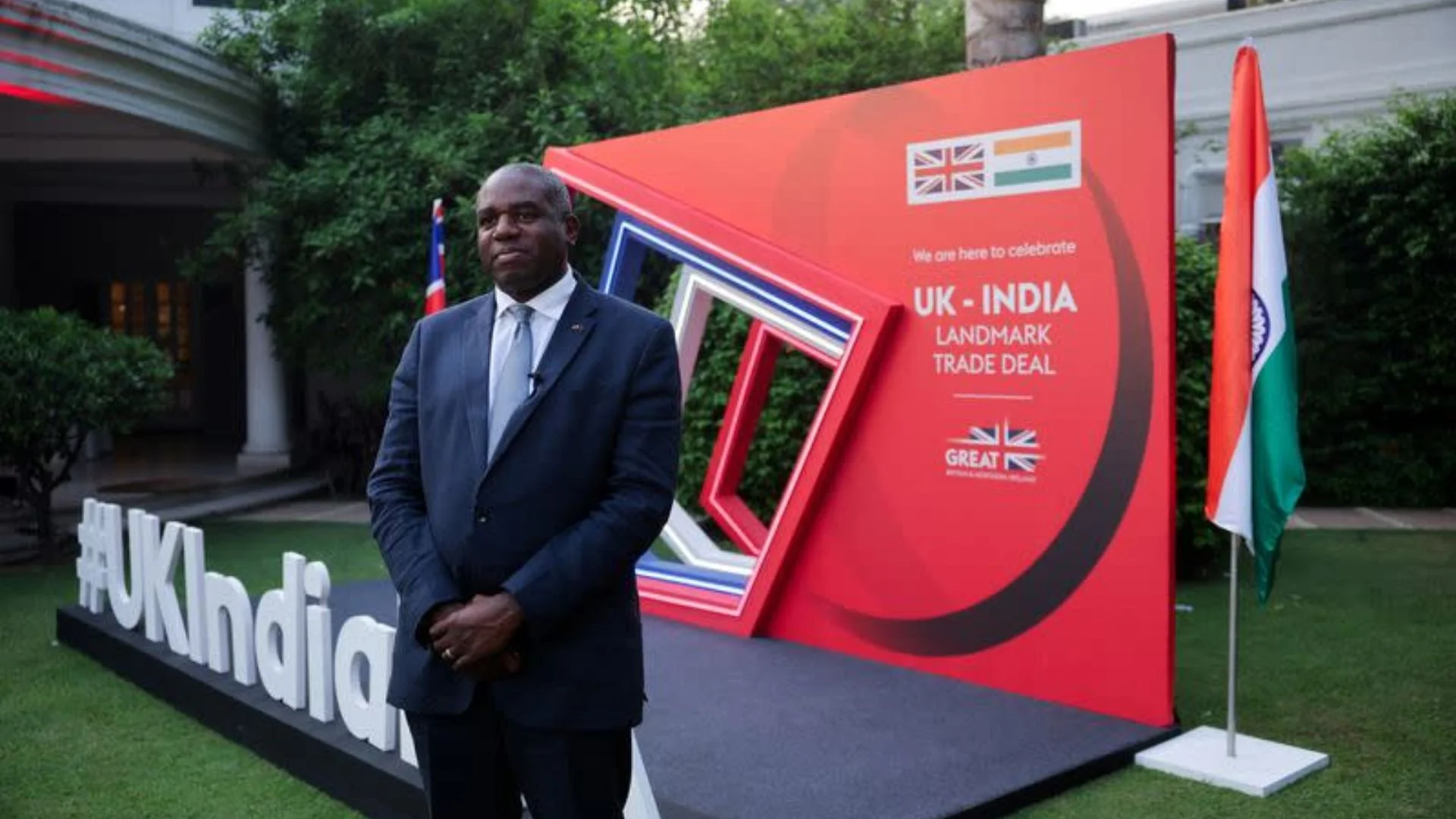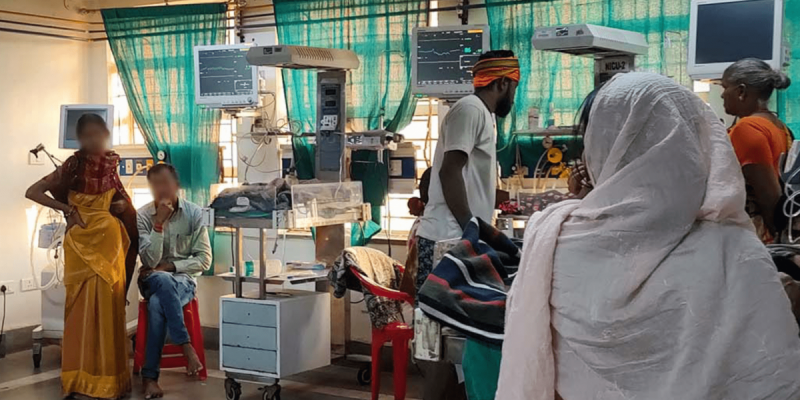- Courses
- GS Full Course 1 Year
- GS Full Course 2 Year
- GS Full Course 3 Year
- GS Full Course Till Selection
- MEP (Mains Enrichment Programme) Data, Facts
- Essay Target – 150+ Marks
- Online Program
- GS Recorded Course
- NCERT- First Ladder
- Polity
- Geography
- Economy
- Ancient, Medieval and Art & Culture AMAC
- Modern India, Post Independence & World History
- Environment
- Governance
- Science & Technology
- International Relations and Internal Security
- Disaster Management
- Ethics
- Current Affairs
- Indian Society and Social Issue
- CSAT
- 5 LAYERED ARJUNA Mentorship
- Public Administration Optional
- ABOUT US
- OUR TOPPERS
- TEST SERIES
- FREE STUDY MATERIAL
- VIDEOS
- CONTACT US
ANTHROPOCENE EPOCH
ANTHROPOCENE EPOCH
13-07-2023

Latest Context
Sediments in Crawford Lake in Canada's Ontario have reportedly offered proof of the start of the Anthropocene era, according to the Anthropocene Working Group (AWG).
Key Points
- Crawford Lake (Canada) sediment research has shown evidence of the Anthropocene epoch's inception.
- Crawford Lake was selected because it is meromictic (water does not mix there) and the layers of sediment it contains have retained the yearly effects of human activity on the climate.
- The term "Anthropocene Epoch" refers to the current geological period during which the Earth's environment has undergone significant changes as a result of human involvement, particularly since the start of the Industrial Revolution.
- This age is characterised by a wide range of events, including lethal heat waves, ocean acidification, sea level rise, global warming, and mass-scale soil erosion.
- The term was originally used in 2000 by biology professor Eugene Stoermer and Nobel Prize-winning chemist Paul Crutzen.
- There is debate regarding whether there is sufficient evidence to demonstrate its invention.
- Aeons, epochs, eras, periods, and ages are the five main divisions of the Earth's geological time scale.
- Officially speaking, we are in the Phanerozoic, Cenozoic, Quaternary, Holocene, and Meghalayan ages.
- The start of the Meghalayan period (4200 years ago) was marked by a sudden mega-drought that led to the dissolution of several civilizations.
- This event's evidence was discovered by geologists in Meghalaya's Mawmluh Cave system.
- Crawford Lake, which is close to Toronto, offers a special reference point for pinpointing the beginning of the Anthropocene.
- The lake's sediments reveal an increase in plutonium particle concentration about 1950.
- Plutonium is a definite sign of human impact and lends credence to the idea that we are living in the Anthropocene period.
- Additionally, they suggest that its ushers in a new era known as Crawfordian after the lake that was selected as its beginning point.
Anthropocene Working Group (AWG)
- An interdisciplinary research team devoted to the study of the Anthropocene as a geological time period is called the Anthropocene Working Group (AWG).
- The International Commission on Stratigraphy (ICS)'s Subcommission on Quaternary Stratigraphy (SQS), which is a constituent body of the organisation, formed it in 2009.
- In 2016, the team came to the conclusion that the Anthropocene epoch started about 1950, marking the beginning of a period marked by nuclear weapon testing, the geochemical remnants of which can be found all across the planet.
- Since then, 12 locations have been taken into consideration by the researchers as potential sources of the crucial data required to prove their hypothesis.
- The Holocene, which has been linked to the present warm period, is characterised by the fast spread, expansion, and global impacts of the human species.
Earth’s Geologic Time Scale
- The formal foundation for studying Earth's 4.5-billion-year history is provided by the geologic time scale.
- Geologists divide the history of our planet into aeons, eras, periods, epochs, and ages, where an aeon is the longest unit of time and an age is the smallest.
- For example, we are presently in the Meghalayan Age. It belongs to the Holocene Epoch, which started 11,700 years ago with the beginning of the glacial and ice age's retreat.
- The Holocene runs from 539 million years ago to the present. It is a component of the Quaternary Period, the most recent division of the Cenozoic Era, which itself is a part of the Phanerozoic Aeon.

What is the Anthropocene Epoch?
- Paul Crutzen, a late Nobel Prize-winning scientist, first presented the concept of the Anthropocene at a science meeting more than 20 years ago.
- Global warming, sea level rise, ocean acidification, widespread soil erosion, the onset of lethal heat waves, the degradation of the biosphere, and other negative changes in the environment are phenomena that are connected to this epoch.
Must Check: IAS Coaching Centre In Delhi
India’s EV Mission: Progress Delayed, Not Denied
India’s EV Mission: Progress Delayed, Not Denied


